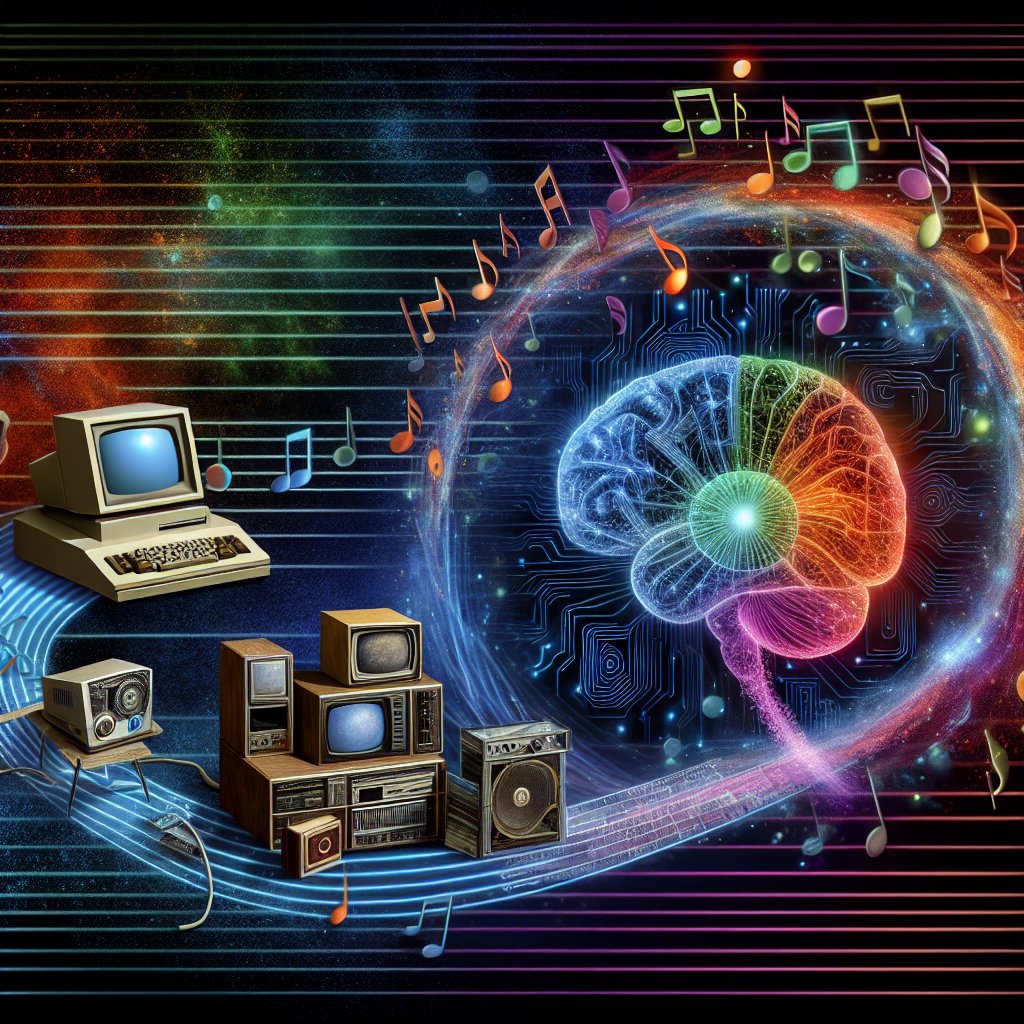Music creation has evolved significantly over the years, with advancements in technology playing a crucial role in shaping the way music is produced and consumed. In recent years, artificial intelligence (AI) has revolutionized the music industry by providing musicians and producers with powerful tools that can help them create music in ways that were previously unimaginable.
AI-driven music creation tools are a type of software that uses machine learning algorithms to generate music based on a set of parameters input by the user. These tools can help musicians and producers come up with new ideas, experiment with different sounds, and even generate entire compositions with minimal human intervention.
The evolution of AI-driven music creation tools can be traced back to the early 2000s when researchers began exploring the potential of using machine learning algorithms to analyze and generate music. One of the earliest examples of AI-driven music creation tools is the EMI (Experiments in Musical Intelligence) system developed by composer David Cope in the 1980s. The EMI system was able to analyze and imitate the style of different composers, generating music that sounded remarkably similar to the works of famous composers such as Bach and Beethoven.
Since then, AI-driven music creation tools have come a long way, with companies like Google, IBM, and Sony investing heavily in research and development to create more sophisticated and powerful tools. These tools can now analyze vast amounts of music data, learn from existing compositions, and generate new music that is indistinguishable from human-created music.
One of the key advantages of AI-driven music creation tools is their ability to speed up the music production process. Musicians and producers can use these tools to come up with new ideas, experiment with different sounds, and create entire compositions in a fraction of the time it would take to do so manually. This can be particularly useful for musicians and producers who are under tight deadlines or who are looking to experiment with new genres and styles.
Another advantage of AI-driven music creation tools is their ability to help musicians and producers overcome creative blocks. By providing users with a wide range of tools and features, these tools can help users break out of their creative rut and come up with fresh ideas that they may not have thought of on their own. This can be especially beneficial for musicians and producers who are looking to push the boundaries of their creativity and explore new musical territories.
AI-driven music creation tools can also help musicians and producers improve the quality of their music. These tools can analyze the structure, harmony, and rhythm of a composition, identify areas for improvement, and provide suggestions on how to enhance the overall sound of the music. This can be particularly useful for musicians and producers who are looking to refine their skills and take their music to the next level.
Despite the numerous benefits of AI-driven music creation tools, there are some concerns surrounding their use in the music industry. One of the main concerns is the fear that AI-driven tools could replace human musicians and producers, leading to a decline in the quality of music produced. However, proponents of AI-driven music creation tools argue that these tools should be seen as a complement to human creativity, rather than a replacement for it.
In addition, there are concerns about the potential ethical implications of using AI-driven music creation tools. For example, there are questions about who owns the rights to music created using these tools, as well as concerns about the potential for bias in the algorithms used to generate music. These concerns will need to be addressed as AI-driven music creation tools become more prevalent in the music industry.
Overall, the evolution of AI-driven music creation tools has the potential to revolutionize the way music is created and consumed. By providing musicians and producers with powerful tools that can help them come up with new ideas, experiment with different sounds, and improve the quality of their music, AI-driven music creation tools are changing the way music is made and enjoyed.
FAQs
1. How do AI-driven music creation tools work?
AI-driven music creation tools use machine learning algorithms to analyze and generate music based on a set of parameters input by the user. These tools can analyze vast amounts of music data, learn from existing compositions, and generate new music that is indistinguishable from human-created music.
2. Can AI-driven music creation tools replace human musicians and producers?
While AI-driven music creation tools have the potential to speed up the music production process and help musicians and producers overcome creative blocks, they should be seen as a complement to human creativity, rather than a replacement for it. Human musicians and producers bring a unique perspective and emotion to music that cannot be replicated by AI-driven tools.
3. What are the ethical implications of using AI-driven music creation tools?
There are concerns about who owns the rights to music created using AI-driven tools, as well as concerns about the potential for bias in the algorithms used to generate music. These concerns will need to be addressed as AI-driven music creation tools become more prevalent in the music industry.

